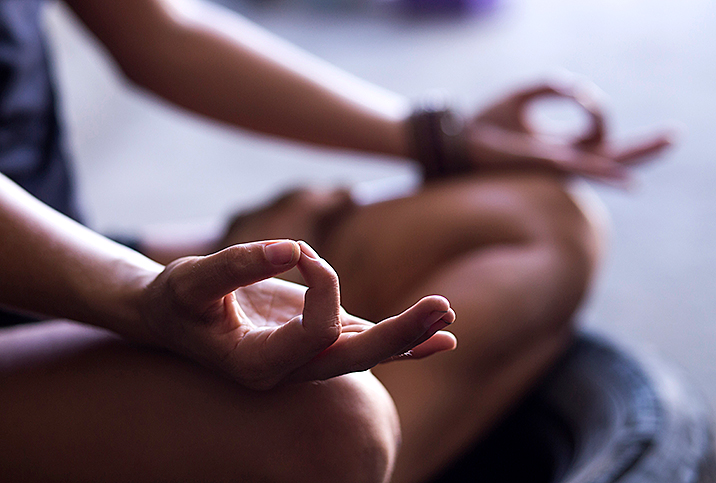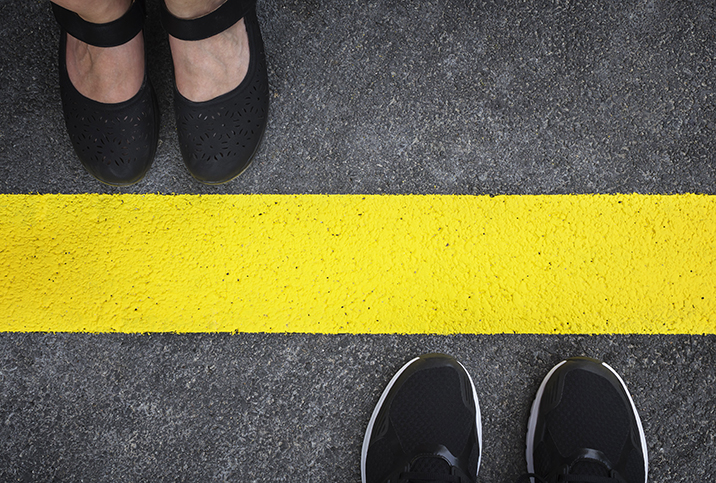How Do Psychologists and Psychiatrists Practice Self-Care?

A cursory Instagram search for #selfcare brings up a medley of posts ranging from inspirational quotes and mental health tips to #ads for expensive eyelash serums and lavish retreats. For many, the term elicits images of bath bombs and face masks, mani-pedis and bottomless mimosas. For others, it's not as superficial. Rather, the term describes a vital component in mental, physical and spiritual well-being.
Everyone needs to check in on themselves routinely, and this practice includes therapists, psychiatrists and psychologists.
Defining self-care
"Although I love a good bath with Epsom salts, self-care is about the bigger picture to me," said clinical psychologist Heidi Cox, Ph.D. "Lose the narrow definition of self-care as being just about taking care of your skin or doing a workbook. Self-care is about knowing yourself and putting that knowledge into action in everyday life."
Charmain Jackman, a psychologist and founder of InnoPsych, Inc., agreed and defined self-care as small, purposeful actions performed regularly to promote overall well-being.
"I also make the distinction between pampering and self-care," Jackman said. "I view pampering as taking care of the external self—hair, nails, etc.—and self-care as taking care of the internal self—sleep, mood, eating, movement, etc. Pampering is about feeling good, and self-care is about peace of mind. We need both."
Most experts say there's nothing wrong with treating yourself, even lavishly, on occasion. However, the widespread conflation of self-care with self-indulgence has made the former seem aspirational, even unattainable, rather than essential.
"Pop culture depicts self-care as shopping sprees, expensive massages and trips to beautiful exclusive islands," said Karen Balumbu-Bennett, LCSW, PPSc. "Though self-care can include occasional self-indulgence, that is not what it's all about.
'Pampering is about feeling good, and self-care is about peace of mind. We need both.'
"Because the media tends to focus on the costlier self-care activities, people don't realize how it can actually be practiced daily," she added. "The media's overrepresentation of pricey self-care activities, unfortunately, leaves people believing that it is unattainable and only something the wealthy or privileged people can experience."
On the contrary, Balumbu-Bennett, Jackman, and colleagues say the most impactful self-care activities are accessible to anyone.
"People think of self-care in terms of 'going to a spa, doing hair, going for coffee, treating yourself with things' whilst these can be part of the self-care, they are the only the smallest tip of the iceberg," said Angela Karanja, a parenting expert and adolescent psychologist, and founder of Raising Remarkable Teenagers. "Our attitude toward our own worthiness and an understanding of what is beneficial for us is at the basis of self-care. Most of the time, it doesn't have to cost us money or time."
"Each person has to reflect on their circumstances and make decisions based on their life situation, not someone else's," Jackman concurred. "I think the best self-care strategies are easy to add to your daily schedule and don't cost a thing."
Self-care isn't selfish
One of the most common objections posed by patients and the public is that self-care seems selfish. Experts say it's far from it. After all, Jackman said, you can't provide for others if you're running on empty.
"People often say that you cannot pour from an empty cup," she said. "Self-care is not selfish because it is about pouring back into you so that you have something to give to others."
"I hear pretty often from people that they are worried self-care is selfish," Cox said. "If you don't take the time to understand yourself and your needs, nobody else will. It's a lot like the airline policy about putting on your air mask first before helping others. If you don't make space for yourself, you will be running on fumes, and that is ultimately unsustainable and doesn't serve anyone well. Make time for yourself, and you will be able to be more present for others, more connected to others and more present to the meaningful things in your life."
Embracing this perspective can be particularly challenging for those whose family members didn't prioritize self-care and instead exhibited self-limiting behaviors.
'People often say that you cannot pour from an empty cup. Self-care is not selfish because it is about pouring back into you so that you have something to give to others.'
"Learning how to care for yourself can be challenging. Some may even consider it to be radical," Balumbu-Bennett said. "Most people probably didn't see good examples of self-care growing up and are now forced to unlearn their ideas around self-care and what it really means."
If time is part of the obstacle, Balumbu-Bennett suggests carving out small periods in the day, starting with one or two 10- or 15-minute intervals, and gradually increasing the duration and frequency. Consider it an appointment with yourself, and write it in your calendar so as not to forget or dismiss it. Afterward, reflect on how you feel.
"If you find that you tend to feel selfish after practicing self-care, take an inventory with friends and family on how much your energy and behavior are different when you care for yourself," she added. "You may not always notice the impact, but the people closest to you probably do. Remember self-care is necessary, it is your right and it is essential to your overall well-being. You are a better person, colleague, friend, partner, parent, family member when you are well taken care of. And that starts with self-care."
5 self-care techniques mental health pros use
Self-care techniques are as varied as the individuals who practice them. All experts agreed that well-rounded self-care practices should address psychological, physical, spiritual and environmental well-being.
In addition to habits like making time for family and friends, and unplugging from social media, here are five specific tactics experts use themselves.
1. Movement and nutrition
Given the evidence supporting exercise and nutrition's effects on mental health, experts unanimously agreed movement and diet are imperative to self-care. While a few follow strict fitness programs, most incorporate movement and healthful nutrition organically.
Balumbu-Bennett dances and does yoga, while Karanja practices intermittent fasting. For Jackman, walking is her "number-one self-care practice," which she started in the early stages of the pandemic.
"These walks help me to get outdoors and enjoy the fresh air," Jackman said. "Most of all, these walks ground me by giving me the opportunity to engage my senses—sight, sound, smell, feel—as I explore the outdoors. These walks are also important because most of my day is spent sitting at my desk, mostly in front of a computer, so being able to move my body during the day is critical. Sometimes my walks are 30 minutes or an hour, but they have been 5 or 10 minutes if my time is limited."
"Sleep hygiene, healthy nutrition and hydration, and regular exercise are the pillars of good physical health," said Sam Zand, a psychiatrist and chief medical officer at Better U.
2. Meditation and mindfulness
Multiple studies indicate mindfulness and meditation can improve physical and psychological well-being, with potential benefits ranging from reducing blood pressure to preventing age-related gray matter atrophy and assuaging anxiety and depression.
"Deep breathing, stretching, and meditating can improve our neurochemical makeup and relieve physical tension," Zand said.
"Most of my strategies fall under the umbrella of mindfulness, which is about being present, using the breath, and having a nonjudgmental stance about your thoughts, feelings and actions," Jackman said.
This includes naming emotions and approaching them without judgment, she continued.
"If I am feeling angry, overwhelmed, happy, tired, I want to notice what I am feeling and where I am feeling it in my body," Jackman explained. "I allow myself to sit with the emotions and reflect on what I need to allow other emotions to enter my consciousness."
"Breathing, slowing down and being mindful and present in the moment helps you take a step back instead of reacting out of fear, anxiety or anger," said Frederica Boso, a licensed mental health counselor at Brightside. "If you can be mindful of thoughts, you can change your thoughts and subsequently your behaviors to suit the situation you are in, whether you just want to relax and let the stresses of the day float away or you want to resolve a crisis effectively."
3. Breathing exercises
Deep breathing is another of Jackman's fundamental daily practices.
"Taking a few minutes to focus on my breath allows me to turn my attention inward and to notice any places of tension or tightness in my body," said Jackman. "It also helps me to identify if there is a need that I am not tuning in to. This happens several times during my day, but predictably after meetings, before meetings, before bedtime and when I wake up."
Zand incorporates deep breathing as well.
"Take deep breaths, all day. We often talk about deep breathing to cope with anxiety, but there's not enough emphasis as a preventive measure," he said. "Taking long exaggerated deep breaths for 10 to 20 seconds every hour helps prevent any fight or flight response from taking over."
4. Setting boundaries
"Self-care is about being accountable for your needs and advocating for yourself," Boso said. "If you're codependent and find self-worth in validation from others, that can be a struggle. Set boundaries, especially in relationships with partners, family, and even coworkers. It's okay to say, 'I can't handle this,' 'I have other obligations' or 'I need time to sleep.' Self-care is ultimately about showing up for yourself."
Saying "no" might not seem like a radical act of self-care. But for people-pleasers, those who benefit most from doing so, it certainly can feel like one.
"For people who have trouble saying no, ask yourself, 'Does this serve me? Am I getting a benefit out of this?' If the answer is no, you are doing it for people-pleasing reasons rather than for your own purpose," Cox said. "We humans are also notoriously bad at reading the minds of others, so you might have a hard time saying 'no' because you fear the other person's reaction. Trust that other people will be able to deal with your 'no.' You don't need to take everything on yourself."
5. Journaling
"Writing your thoughts down helps you get it out of your head to stop ruminating or stop an anxiety spiral," Boso said. "When you write something down, you bring it to the forefront of your mind, you acknowledge [it] and can choose to tackle it head-on, or put it on your to-do list for later. Journaling gives you the opportunity for self-reflection, validates your thoughts and feelings, and helps you engage in positive self-talk to reframe negative thoughts and feelings."
Boso advises not to get caught up in grammatical errors, what your handwriting looks like or what others might think if they read what you've written.
"The goal is just to write what comes to mind, regardless of if it is good or bad. Just write. It can be about what you are feeling in the present moment, what you hope for or what you wish could be different."
Karanja practices a similar reflective habit before bed, focusing on the positive aspects of her day and intentionally expressing gratitude.
"The tendency for many people is to remember the bad things," Karanja said. "Mainly because the brain wants us to remember that, so we can avoid it next time and be protected from harm (whether real or imagined). The problem with that, though, is, if we do not actively shift from that low and negative frequency, we will attract the exact same experiences.
"If you can't find anything good to write, write whatever happened just as it did, then ask yourself for any growth moments hidden in the happenings of the day," she continued. "Be active and reflective. Change is an active process, and we must be willing to shift the steering wheel even if it's just a tad if we want to end up at a different destination."


















